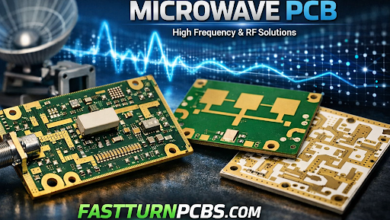Designing a Home That Thinks Ahead of You

The modern home is no longer just a space for shelter; it is evolving into a proactive ecosystem designed for safety, efficiency and convenience. As homeowners look for ways to future-proof their living spaces, one solution stands out for its versatility and value: home automation. When implemented effectively, it transforms a house into a responsive environment that adapts to the habits, schedules and needs of its occupants.
With more people now searching for integrated home automation systems for smart living, the demand for intelligent architecture and connected electrical devices is at an all-time high.
Why Homes Need to Think Ahead
Living in a home that anticipates your needs isn’t just about luxury. It is increasingly becoming a necessity driven by busy lifestyles, energy concerns and safety expectations. Homes equipped with automation can employ sensors, electrical equipment and intelligent interfaces to:
- Detect and respond to occupancy
- Adjust lighting, heating, or cooling based on real-time usage
- Alert homeowners about security or maintenance issues
Incorporating Smart Technology
Designing a smart home begins with choosing the right technologies that complement the resident’s lifestyle. This includes deploying a mix of smart lighting, climate control systems, motion detectors and voice assistants. These devices, when integrated through a centralised platform, can offer seamless control and management.
Key elements to incorporate include:
- Programmable thermostats and lighting systems
- Smart locks and surveillance equipment
- Leak detectors and smoke sensors
These instruments not only enhance daily convenience but also reduce energy consumption and enhance security. With machine learning capabilities, these devices can study user preferences and automate repetitive tasks, helping the home think more effectively over time.
The Role of HMIs in Smart Living
A critical component in making home automation user-friendly is the Human-Machine Interface (HMI). HMIs simplify complex operations through intuitive dashboards, enabling users to:
- Monitor all electrical devices from a single point
- Customise settings based on preferences or schedules
- Receive alerts and maintenance reminders in real-time
User-friendly HMIs ensure that even the most sophisticated systems remain accessible to all age groups, promoting inclusivity and ease of use.
Design Considerations for Smart Homes
Designing a smart home goes beyond installing a few gadgets. It requires strategic planning, including:
- Assessing the layout to optimise sensor and device placement
- Ensuring compatibility across equipment
- Prioritising data privacy and cybersecurity
Employing modular systems allows homeowners to upgrade gradually without major overhauls. This ensures long-term adaptability as newer technologies emerge.
The Benefits of Intelligent Automation
The advantages of home automation are multifaceted. From improved safety to enhanced lifestyle quality, homeowners can expect:
- Reduced utility bills through energy-efficient management
- Increased property value
- Remote access and control of critical home systems
As highlighted by a ResearchGate study, smart homes support ageing-in-place strategies, allowing elderly occupants to live independently for longer by reducing physical demands and providing emergency alerts.
Why Choose a Reputed Electrical Brand
While the benefits of automation are clear, the success of any smart home system depends on the quality of the equipment and integration. Collaborating with a reputed electrical brand ensures:
- Reliable performance and compatibility across devices
- Adherence to safety and energy efficiency standards
- Continued technical support and future ready upgrades
These brands typically conduct rigorous testing and offer warranties that provide long-term peace of mind to homeowners deploying complex automation systems.
Looking Ahead: Smart Living as a Standard
Designing a home that thinks ahead is no longer a futuristic concept, it is today’s smart strategy for sustainable living. With intelligent automation, electrical devices and systems can be tailored to individual preferences, ensuring homes remain responsive and efficient for years to come.



